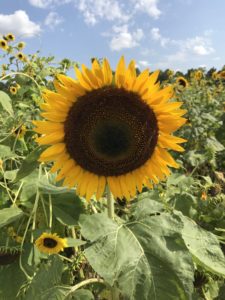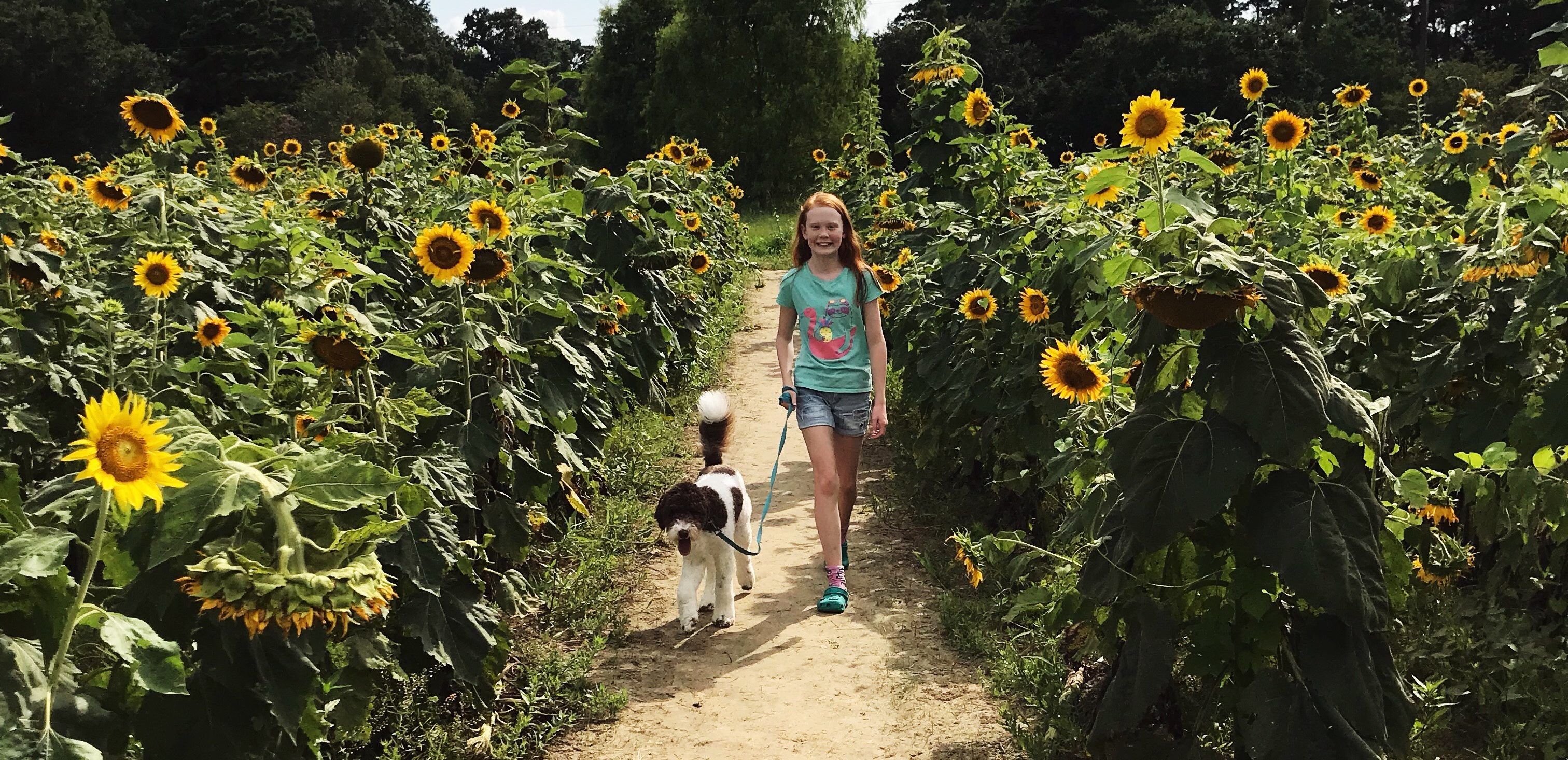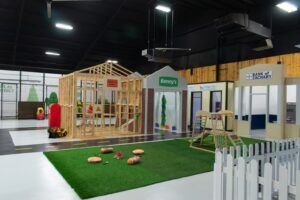Hidden gem: Sunflower fields at LSU AgCenter Botanic Gardens
“You can’t stand in a sunflower field and be sad. It’s impossible. It’s just too beautiful and too happy,” laughs Katie Guitreau, lead events and marketing coordinator at the LSU AgCenter Botanic Gardens.
What began about eight years ago as an experiment of a measly six rows of sunflowers quickly blossomed—literally and figuratively—into a local destination. Now, at anywhere between an impressive six to eight fields of sunflowers, this labor of love brightens the days of all who visit.
 “I’ve been with the Botanic Gardens for about 10 years, and when I first started, not many people in the city knew about us,” says Guitreau. “It was kind of upsetting. Finally, the sunflower fields just pulled at the heartstrings of people. They just got excited about them. They thought they were so beautiful and so bright.”
“I’ve been with the Botanic Gardens for about 10 years, and when I first started, not many people in the city knew about us,” says Guitreau. “It was kind of upsetting. Finally, the sunflower fields just pulled at the heartstrings of people. They just got excited about them. They thought they were so beautiful and so bright.”
How much work does it take to put that kind of smile on someone’s face? It’s certainly no small feat. Between chopping the fields, weeding, fertilizing, creating rows, planting the seeds then maybe fertilizing again, it’s a full two to three months of work before the first bloom. But, don’t fret—the sunflowers aren’t a fleeting attraction.
“We’re doing our last field this week, so hopefully we’ll have the sunflowers from June until November this year,” explains Guitreau. “We just have to deal with mother nature and what she has to offer us for each year, and pray that we can get as many sunflowers as we can. This year, we’ll probably have the full eight fields. We’re just hoping the ones that are in the ground now don’t get destroyed by the hurricane coming in.”
Thought all sunflowers were created equal? Think again. From 2-feet-tall Pygmy sunflowers to the 12-feet-tall Mammoth variety, the sunflower fields flaunt all different shapes and sizes. If you want to learn more, the folks at the Botanic Gardens are happy to help.
“We’re an educational facility first and foremost. We’re ready to serve Baton Rouge in a way it hasn’t been served before–through education in horticulture. That way, you can do it at home,” Guitreau says. “In quarantine, education has become really important, with more people growing their own gardens. People have started looking to us for answers, and that’s what we want.”
Visit the sunflower fields at the LSU AgCenter Botanic Gardens free of charge seven days a week from 8 a.m to 5 p.m.












